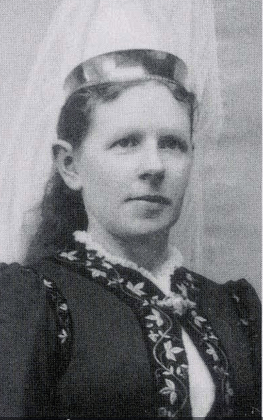Katrín Magnússon facts for kids
Katrín Sigríður Skúladóttir Magnússon (1858–1932) was an important woman in Iceland's history. She was an early feminist, which means she worked for equal rights for women. Katrín helped women get the right to vote and access better education in the late 1800s. She was also a city council member in Reykjavík from 1908 to 1916.
Contents
Early Life and Family
Katrín Sigríður Skúladóttir was born on March 18, 1858. Her birthplace was the island of Hrappsey in north-western Iceland. Her father, Skúli Þorvaldsson Sívertsson, was a farmer. Her mother was Hlíf Jónsdóttir.
When Katrín was 14, she visited her aunt in Reykjavík. There, she met Guðmundur Magnússon, a doctor and professor. They married in 1891 and moved to Copenhagen. A year later, they returned to Iceland. They settled in Sauðárkrókur after her husband got a job at a hospital.
Katrín was interested in medical work herself. However, the only medical training for women at that time was to become a midwife. She did not find this appealing. Still, she often helped her husband with his patients.
Working for Women's Rights
Katrín became very active in social issues. She especially focused on helping women's organizations. She joined the Icelandic Women's Association (Íslenska kvenfélag). She led this group from 1903 to 1924.
In 1917, she helped create another group called the Women's Alliance (Bandalags kvenna). She also served on the board of Thorvaldsensfélag. This is Iceland's oldest women's organization, started in 1875.
Promoting Education
Katrín was very interested in education for girls. She was part of the school committee for the Kvennaskólan (Women's School) in Reykjavík. She believed that education was key for women's progress.
Role in Politics
Katrín was one of four women who served on the Reykjavík city council. She was a council member from 1908 to 1916. This was an important step for women in Icelandic politics.
Later Life
Katrín Magnússon passed away in Reykjavík on July 13, 1932. She is remembered for her strong efforts to improve women's rights and education in Iceland.


